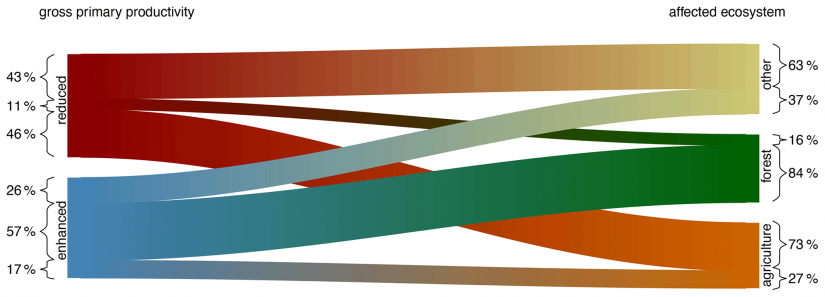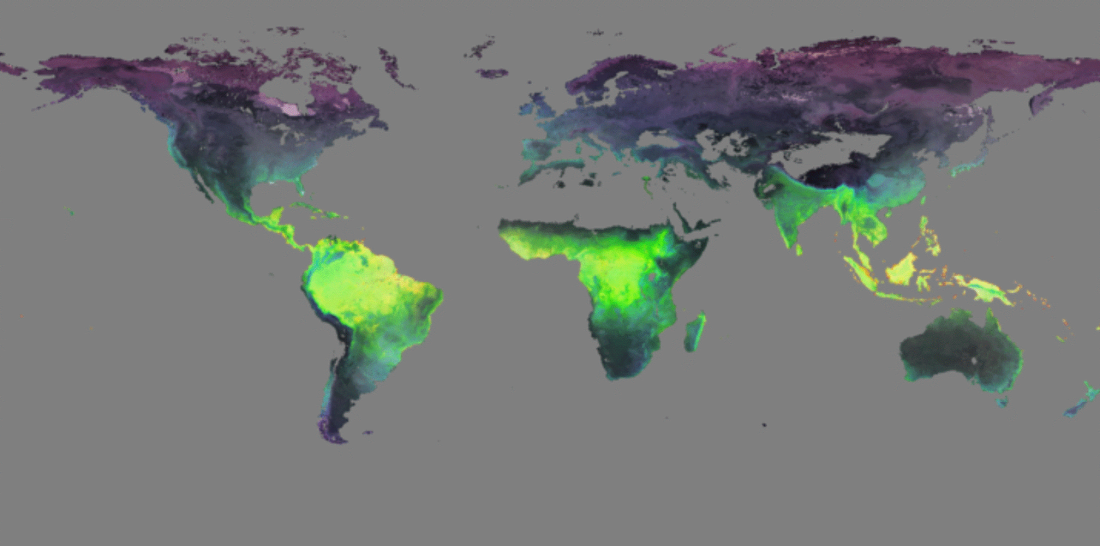Gross primary production (GPP), the total carbon fixation by terrestrial ecosystems through vegetation photosynthesis, is being affected by drought and heat events.
Previous studies have demonstrated how the duration and the intensity, as well as the timing of such events are controlling the GPP.
A research conducted within the framework of the Earth System Data Lab looked at the impact of climate extremes on GPP at global scale taking advantage of the data cube offered by the online laboratory: the remote-sensing-driven FluxCom product for GPP, ERA5 for 2m air temperature and incoming shortwave radiation, Global Land Evaporation Amsterdam Model (GLEAM) for subsurface moisture and MODIS-based Land Cover.
Results show how GPP in grasslands and agricultural areas is generally reduced during heat and drought events while forests appear in general not to be particularly sensitive to them, showing even increased GPP values, regardless of the event timing, i.e. the conditions prior to the event.

In the perspective of climate-change induced increases in frequency, duration, intensity and spatial extent of extreme events in the next decades, predicting the ecosystems response in terms of GPP will have to take into differentiated consideration different land cover types.
Read more in the full paper.
Flach, M., Brenning, A., Gans, F., Reichstein, M., Sippel, S., and Mahecha, M. D.: Vegetation modulates the impact of climate extremes on gross primary production, Biogeosciences, 18, 39–53, https://doi.org/10.5194/bg-18-39-2021, 2021.
The Earth System Data Lab is an open virtual laboratory accessible at https://www.earthsystemdatalab.net

